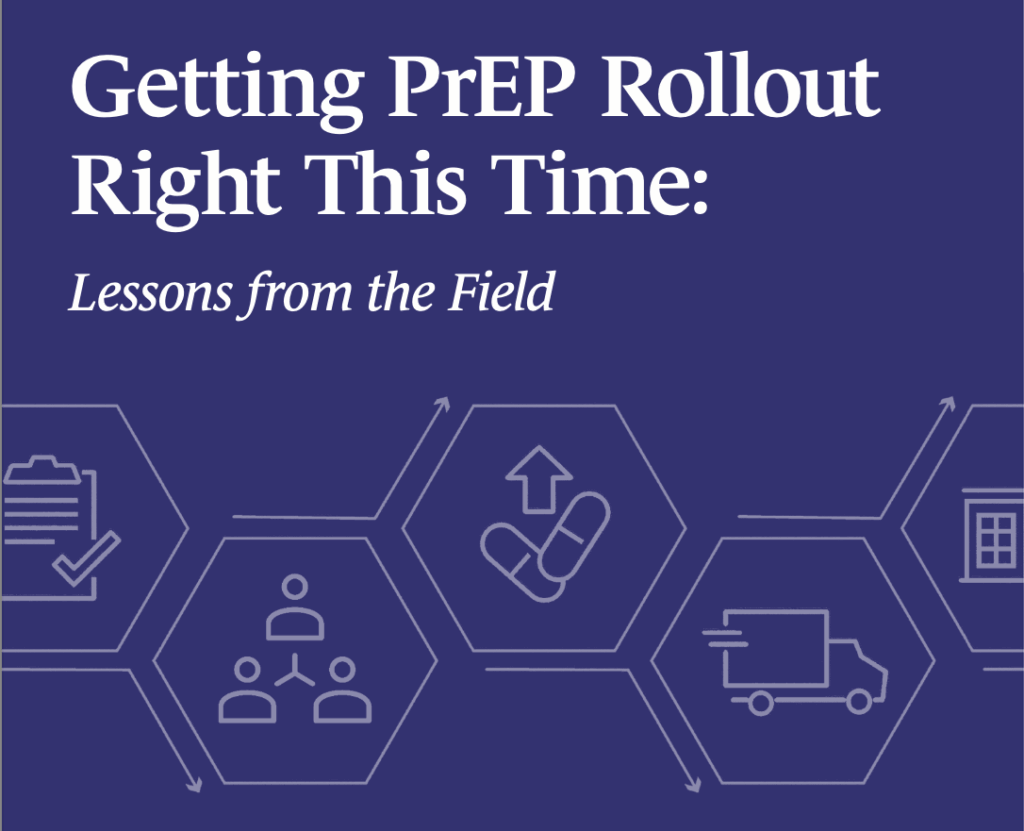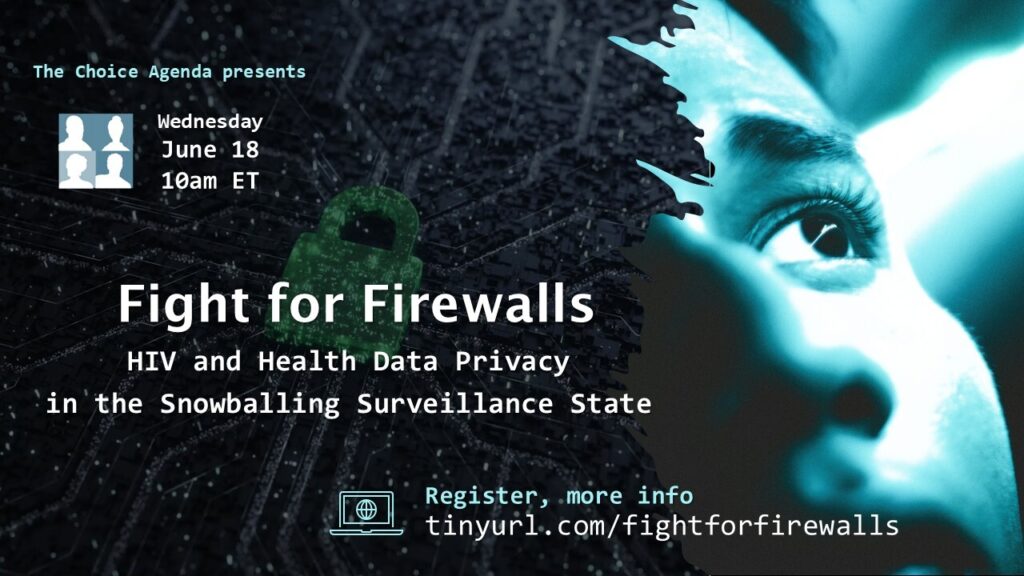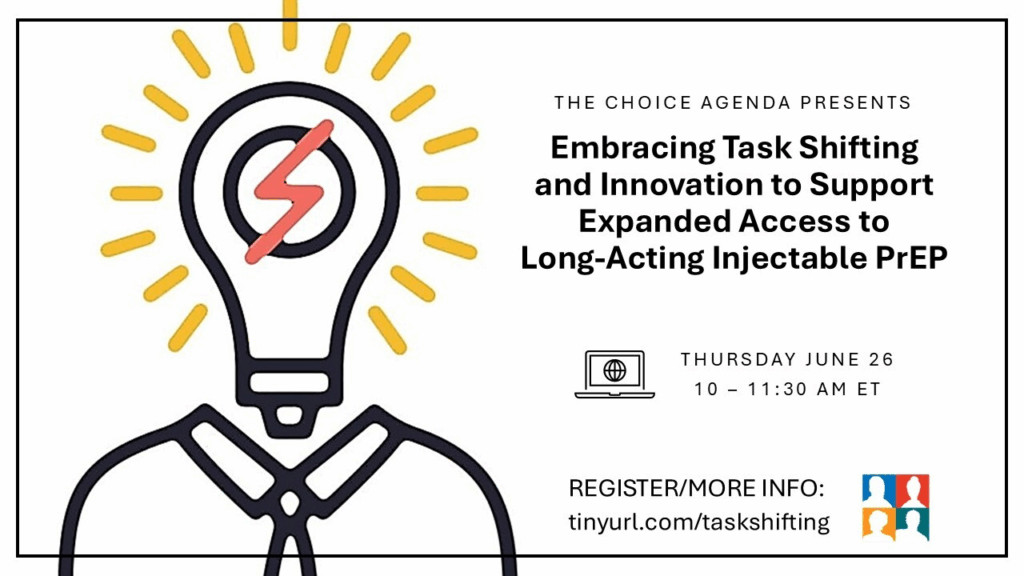June 13, 2025
This week brought the unprecedented removal of the US vaccine advisory committee, layoff reversals and confusion at the US CDC and a public letter signed by over 1,000 NIH scientists denouncing the administration’s actions. And just as this week’s issue was going to press, the US House of Representatives passed the President’s request for a rescission of billions of dollars – primarily for foreign assistance. This week underscored the urgency of defending evidence-based health policy.
US House Votes to Claw Back Funds for Foreign Assistance
The US House of Representatives passed a rescissions package that will claw back $9.4 billion of funds from FY25 spending, funds that were already Congressionally appropriated, but not yet spent. The package eliminates over $900 million from global health programs and includes cuts to PEPFAR, despite bipartisan support for these programs for more than two decades. The package also codifies into law the dismantling of USAID, which was initiated through presidential executive overeach and the reckless actions of DOGE.
IMPLICATIONS: The rescissions package would have far and deep implications for health, science, and research in the US and around the world. The House’s decision is the latest action in support of the Administration’s objective to slash foreign assistance funding and infrastructure. The Senate has until July 18 to approve.
READ:
- House GOP approves first batch of DOGE cuts—The Hill
- House clears $9.4B in funding clawbacks requested by White House—Politico
Attacks on Vaccine Policy and Science
Health and Human Services (HHS) Secretary Robert F. Kennedy, Jr. removed all members of the US Advisory Committee on Immunization Practices (ACIP), a panel of vaccine experts—with decades of experience in vaccine development, delivery and safety—responsible for developing the country’s vaccine recommendations for the Centers for Disease Control and Prevention (CDC), which then shape US health insurance policies and coverage. Kennedy replaced them with new members, many of whom are tied to anti-vaccine groups or have shared anti-vaccine views publicly.
IMPLICATIONS: These actions are the latest in a series of assaults on vaccine development and delivery systems, including defunding for CDC immunization programs, the NIH’s HIV vaccine development consortia, and global vaccine access efforts like Gavi. This new panel could take actions that turn this trusted scientific body into a platform for mis- and dis-information and anti-vaccine policies.
READ:
- AVAC Condemns Removal of the Advisory Committee on Immunization Practices—AVAC
- Opinion | RFK Jr.: HHS Moves to Restore Public Trust in Vaccines—Wall Street Journal
- Removal of US Vaccine Advisory Committee is ‘Dangerous and Unprecedented’—Health Policy Watch
- COVID Critics Dominate New US Vaccine Advisory Committee—Health Policy Watch
CDC Firings Reversed Amid Much Confusion
In April, widespread layoffs decimated the CDC and its critical divisions, including Reproductive Health, Population Health, and HIV and STD Prevention. This week, the Administration reversed itself on some of the layoffs. More than 450 CDC staff have been called back, including staff from the National Center for HIV, Viral Hepatitis, STD, and TB Prevention. HHS Secretary RFK Jr. admitted that at least 20% of cuts were “mistakes.”
IMPLICATIONS: While this reinstatement may restore some capacity, major damage has already been done: STI labs remain unable to collaborate with WHO, samples were discarded in the initial chaos, and costly disruptions are ongoing. Programs tracking HIV, STIs, and global health have been upended, and further reductions in force (RIFs) are still expected.
READ:
NIH Scientists Publish Declaration Speaking Out
More than 1,000 current and former NIH staff published and signed a public letter denouncing the Administration’s proposed FY26 budget and the actions taken to date that threaten science, research and public health. The Bethesda Declaration specifically calls out the termination of research programs and the appointment of NIH Director Jay Bhattacharya. The solidarity behind this declaration speaks to the extraordinary harm these policy changes are having on a scientific community that historically avoids public protest.
IMPLICATIONS: Those that signed the declaration may be at risk of future retribution, but as the NIH faces a proposed $18 billion cut and changes to global partnerships, this effort signals growing pushback to the US government’s hostility to evidence-based science.
READ:
- NIH scientists publish declaration criticizing Trump’s deep cuts in public health research—Associated Press
- NIH scientists have been angry for months. Now some are rebelling.—Washington Post
- NIH Staff Have Broken Their Silence—The Nation
Senate Hearing on Proposed Fiscal Year 2026 NIH Budget
At Tuesday’s Senate Appropriations Subcommittee hearing on the NIH’s proposed FY26 budget, Senator Patty Murray and other senators forcefully challenged Dr. Bhattacharya over the drastic $18 billion in proposed cuts. Senator Murray pressed Bhattacharya on the abrupt termination of at least 160 clinical trials and questioned how such cuts will impact HIV research. Bhattacharya acknowledged that fewer clinical trials would be likely under the new budget, though he noted that it will depend on congressional action. Murray pushed back, noting the longstanding US leadership in global HIV research and warning against dismantling scientific partnerships. “We cannot allow politics to compromise science, especially when lives are at stake,” she said.
IMPLICATIONS: Without strong congressional pushback, the future of HIV clinical trials, the NIH vaccine consortia, and broader research infrastructure are at serious risk.
READ:
- Senators push back on Trump’s proposed $18 billion NIH budget cut—STAT
- The Future of US Foreign Aid Is Looking Troubled—NOTUS
The Scientific Journey of Lenacapavir
AVAC hosted a conversation, The Scientific Journey of Lenacapavir, reviewing how sustained US investment in NIH basic science and South Africa’s clinical research infrastructure made possible the development of lenacapavir (LEN) for PrEP. Linda-Gail Bekker, Wes Sundquist, and Mitchell Warren highlighted LEN’s long scientific journey, beginning with Sundquist’s HIV capsid research in 1991 to the pivotal PURPOSE clinical trials to today. The field is eagerly anticipating US FDA approval by next Thursday and a WHO recommendations next month. This week’s webinar focused on this moment of promise in HIV prevention and how sweeping attacks on science, research and the very systems that made LEN possible may squander this opportunity to bend the curve of the epidemic.
IMPLICATIONS: The potential of injectable LEN for PrEP is fragile in the midst of an all-out assault on research systems, global partnerships, and public health funding. Cuts to NIH, the dismantling of USAID, the closure of clinical trials, and the termination of HIV vaccine consortia put decades of progress and a pipeline of potential next generation products, at risk. As Bekker warned, “We are losing expertise the world can’t afford to lose.” The message was clear: we must act now to protect what made LEN possible and ensure a future pipeline of prevention.
READ/WATCH:
- Webinar Summary: The Scientific Journey of Lenacapavir — and the Urgency to Defend HIV Prevention Science
- Webinar recording: The Scientific Journey of Lenacapavir
- A promising new HIV vaccine was set to start trials. Then came Trump’s latest cuts—NPR
New Report: Getting PrEP Rollout Right This Time
A new AVAC report examines key insights from the rollout of oral PrEP and early introduction of injectable cabotegravir (CAB) and the dapivirine vaginal ring (DVR) to inform a faster, smarter and more equitable introduction of future HIV prevention tools, including long-acting injectable PrEP, such as lenacapavir.

What We’re Reading
- Trump administration to cut all USAID overseas roles in dramatic restructuring—The Guardian
- UN development chief on the ‘life-threatening consequences’ of foreign aid cuts—Financial Times
- Philanthropies rush to save measles surveillance network pushed to brink of collapse by US cuts—STAT
- Time to Rethink Global Health Recruitment as Africa’s Health Workers Deserve Better—Health Policy Watch
- Special Edition: Germany steps into the void USAID left behind—Devex
- Science Shattered—ProPublica
- He Led George W. Bush’s PEPFAR Program to Stop AIDS. Now He Fears for its Future—NPR
Resources
- US Global Health Country-Level Funding Tracker, KFF
- An Update on PEPFAR Reauthorization, KFF
- Impact Metrics Dashboard
- Advocates’ Guide: Understanding the President’s Proposed Fiscal Year 2026 (FY26) Budget and Its Implications for Science, Research and Global Health, AVAC
- Preparing for a Supreme Court Decision That Could Change Health Care Coverage for Millions of Americans, Equality Federation and CHLP (2025), CHLP
- Research Matters, AVAC, HIVMA, TAG
Upcoming Webinars
Fight for Firewalls: HIV and Health Data Privacy, in the Snowballing Surveillance State

This webinar will explore the urgent risks to health data privacy, particularly for people living with HIV, in the context of rising surveillance and criminalization of healthcare.
June 18, 2025 at 10am ET
Embracing Task Shifting and Innovation to Support Expanded Access to Long Acting Injectable PrEP

This inspiring discussion will cover task shifting and innovation related to improving PrEP access.
June 26, 2025 at 10am ET